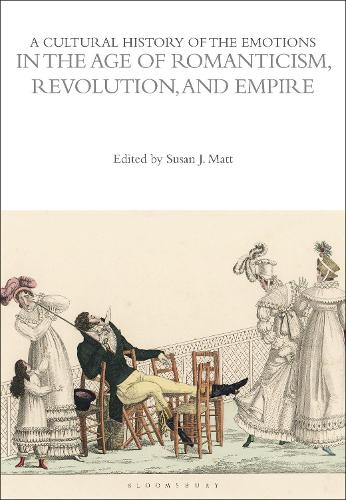
A Cultural History of the Emotions in the Age of Romanticism, Revolution, and Empire
(Hardback)
Available Formats
Publishing Details
A Cultural History of the Emotions in the Age of Romanticism, Revolution, and Empire
By (Author) Prof. Susan J. Matt
Bloomsbury Publishing PLC
Bloomsbury Academic
11th March 2021
United Kingdom
Classifications
Tertiary Education
Non Fiction
European history
Ancient history
152.4
Physical Properties
Hardback
232
Width 174mm, Height 246mm, Spine 16mm
574g
Description
Between 1780 and 1920, modern conceptions of emotionconceptions still very much present in the 21st centuryfirst took shape. This book traces that history, charting the changing meaning and experience of feelings in an era shaped by political and market revolutions, romanticism, empiricism, the rise of psychology and psychoanalysis. During this period, the word emotion itself gained currency, gradually supplanting older vocabularies and visions of feeling. Terms to describe feelings changed; so too did conceptions of emotions proper role in politics, economics, and culture. Political upheavals turned a spotlight on the role of feeling in public life; in domestic life, sentimental bonds gained new importance, as families were transformed from productive units to emotional ones. From the halls of parliaments to the familial hearth, from the art museum to the theatre, from the pulpit to the concert hall, lively debates over feelings raged across the 19th century.
Author Bio
Susan J. Matt is Presidential Distinguished Professor of History at Weber State University, USA. She is author of Keeping Up with the Joneses: Envy in American Consumer Society, 1890-1930 and Homesickness: An American History, and co-author with Luke Fernandez of Bored, Lonely, Angry, Stupid: Changing Feelings about Technology from the Telegraph to Twitter. Her writing has appeared in the New York Times, the Wall Street Journal, and the Journal of American History.
